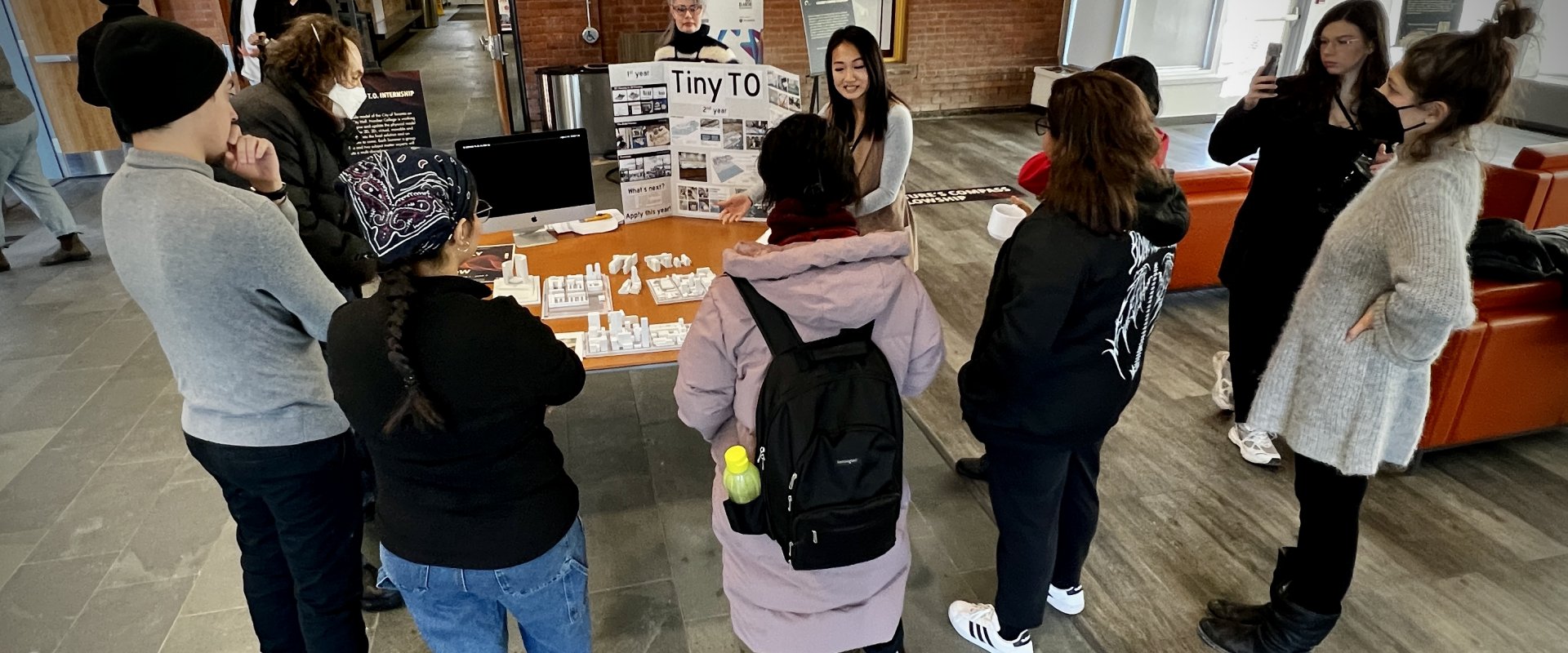Last Friday may have brought record-breaking low temperatures to Lakeshore Campus; however, the weather was far from the only remarkable thing happening that day! Inside G Cottage’s BMO Innovation Lounge, the Centre for Creative Business Innovation (CCBI) and Humber Galleries presented their 2022 Fellowship Showcase, a free event open to all.
Humber faculty, students and staff spent a relaxed afternoon exploring the creative outcomes of the six fellowships:
- Culture's Compass
- Graphic Medicine
- Indigenous Transmedia
- Intercultural and Creative Music
- Nuit Blanche
- Tiny Town
Each featured at their own station, the Showcase was a remarkable opportunity to see the vastly different outcomes under one roof. It was also a great chance to get to know the coordinators and project leads, as well as to chat with former fellows firsthand about the applied benefits of the Fellowship Program.
Each fellowship provides a framework for students to collaborate on one co-created outcome. This introduces fellows to research creation, the Canadian term that defines how the creative process has formal applied methods that result in innovation and research outcomes. The final products of this process are often seen in the artifacts produced as opposed to an academic paper, although those have been produced as well. For many, it is the first time they have seen themselves as researchers and had the chance to spend a concentrated period investigating a “wicked” problem, such as tackling loneliness during the COVID-19 pandemic.
Fellows also learn how to apply the Humber Learning Outcomes, and label skills with concrete examples in areas employers are focused on, such as negotiation, communication and critical thinking. Not only are the fellowships teaching students innovative approaches to creating applied solutions to “wicked” problems, but the fellowship structure itself is also an innovation in polytechnic teaching. We take technology and pair it with crisis points in society brought to us by our industry partners and then apply our diverse lived and trained experience to collaborate toward one outcome. That collectivity is unique in the creative arena, where people often work in isolation. Although we do not engage in formal assessment, feedback comes when the projects are presented to the client and the public. Validation comes from our creative communities, who choose to amplify and celebrate the outcomes.
This approach with undergraduate polytechnic students is unique. What we are doing with Humber's Centres of Innovation Network is ground-breaking and echoes current education strategies coming out of Scandinavia. Imagine being a student and showing your work at Nuit Blanche or presenting it to Prince Aga Khan. Talk about incredible portfolio pieces. The best part is the agency the students come away with. They know they can positively affect and change, even save, lives and they understand there are myriad career-adjacent opportunities for applying that agency. I don’t know how you can be better prepared for the future than that.
Applications for the 2023 Fellowship Program are now open.
Jennifer Gordon,
Director, Centre for Creative Business Innovation and Humber Galleries



